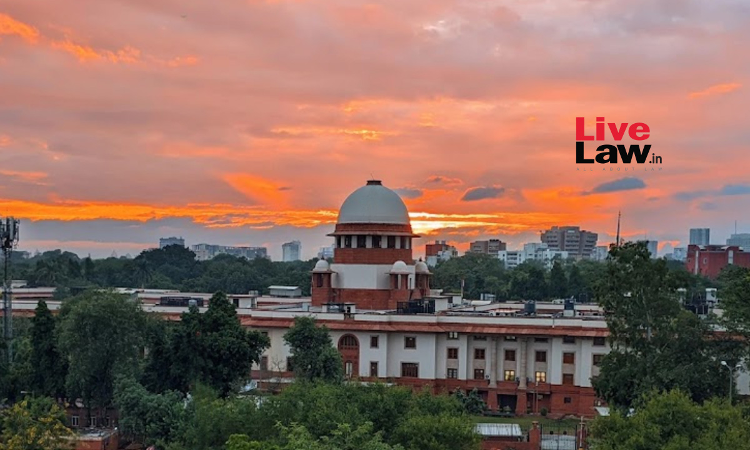'Some Files Approved Fast, Some Kept Pending' : A Look At The Time Taken By Centre In Accepting Different Collegium Recommendations
Manu Sebastian
11 Dec 2022 4:47 PM IST

Image: Vivek Negi
Some recommendations are approved fast, but some others are kept pending for months, observed the Supreme Court recently while hearing a case filed against the Union Government for delaying approval for collegium proposals.
There is no definite time-line set for the Centre to decide on collegium proposals, except in respect to names reiterated by the collegium as High Court judges, where there is a definite judicial direction to the Centre to make the appointment within 3-4 weeks.
Due to the lack of a definite time-line, the Centre's approvals for the collegium proposals for elevation to the Supreme Court have come at a staggeringly varying pace. There are instances of appointments being made within a matter of few days after the collegium recommendations. Also, there are instances where some proposals remain pending for several months. This lack of uniform approach can be better illustrated by examining the time-lines behind some of the recent appointments to the Supreme Court.
Elevation of Justice Dipankar Dutta [Appointment notified 75 days after collegium recommendation]
The latest appointment made to the Supreme Court is of Justice Dipankar Dutta, who was formerly the Chief Justice of the Bombay High Court. The Supreme Court collegium had proposed his elevation in the resolution passed on September 26. However, the proposal remaining pending with the Union Government for nearly 3 months and his appointment was notified on December 11, 2022.
While issuing notice to the Secretary (Justice) in a contempt petition filed over delay in judicial appointments, the Supreme Court on November 10 had recorded the submission made by Senior Advocate Vikas Singh, the President of the Supreme Court Bar Association, that "even the recommendation made for appointment for the Supreme Court more than five weeks ago is still awaiting appointment".
"We are really unable to understand or appreciate such delays", a bench led by Justice SK Kaul had commented then.
Elevation of Justices Sudhanshu Dhulia and JB Pardiwala [Appointments notified on the 2nd day of collegium recommendation]
The Supreme Court collegium made the recommendations for the elevation of Justices Sudhanshu Dhulia and Justice JB Pardiwala on May 5. The Centre notified their appointments within 2 days, on May 7.
Elevation of Justices AS Oka, Vikram Nath, JK Maheshwari, Hima Kohli, BV Nagarathna, CT Ravikumar, MM Sundresh, Bela Trivedi and PS Narasimha [Appointments notified 9 days after the collegium resolution]
In what remains the highest ever number of appointments made to the Supreme Court in one go, the Centre on August 26, 2021 notified nine appointments. These nine files were finalized by the Ministry within nine days of the collegium resolution passed on August 17, 2021.
Elevation of Justices Krishna Murari, S Ravindra Bhat, JK Maheshwari, V Ramasubramanian and Hrishikesh Roy [Appointments notified 21 days after the collegium resolution]
The collegium resolution regarding the elevation of Justices Krishna Murari, S Ravindra Bhat, JK Maheshwari, V Ramasubramanian and Hrishikesh Roy was made on August 28, 2019. The Centre notified their appointments on September 18, 2019.
Elevation of Justices BR Gavai, Surya Kant, Aniruddha Bose and AS Bopanna [Appointments notified 13 days after the collegium resolution]
The collegium recommended the elevation of Justices BR Gavai and Surya Kant in its resolution passed on May 9, 2019. On the same day, the collegium reiterated the earlier proposals made for the elevation of Justices Aniruddha Bose and AS Bopanna (the Centre had earlier returned these proposals citing concerns about inter-se seniority). All these four names were approved by the Centre by the notifications issued on May 22, 2019.
Elevation of Justices Dinesh Maheshwari and Sanjiv Khanna [Appointments notified 6 days after the collegium resolution]
The Centre notified their appointments as the judges of the Supreme Court on January 16, 2019, following the collegium recommendation made on January 10, 2019.
Elevation of Justices Hemant Gupta, R Subhash Reddy, MR Shah and Ajay Rastogi [Appointments notified 2 days after the collegium resolution]
The Centre notified their appointments on November 1, 2018, following the collegium resolution made on October 30, 2018. While speaking at a public interaction few days, the then CJI Ranjan Gogoi expressed surprise at the "unprecedented" speed with which the Government cleared the recommendations.
Elevation of Justice K M Joseph
The most delayed approval of the Centre in the recent times came with respect to the proposal for the elevation of Justice KM Joseph. His appointment was notified about seven months after the collegium resolution, that too after much drama and controversy. His recommendation was forwarded by the Collegium on January 11, 2018, along with the name of Justice Indu Malhotra. After sitting over the recommendation for over three months, the Centre returned Justice Joseph's name in April 2018, while approving Justice Malhotra's appointment. This led to massive protests from the bar. The perception was that Centre was blocking Justice Joseph's appointment as he had passed directions adverse to the establishment. In July 2018, the Collegium reiterated its proposal to elevate Justice Joseph. Nearly a month later, the Centre accepted the proposal. But the order of appointment issued by the Centre placed Justice Joseph below other two first time recommendees, thereby disrupting the seniority.


